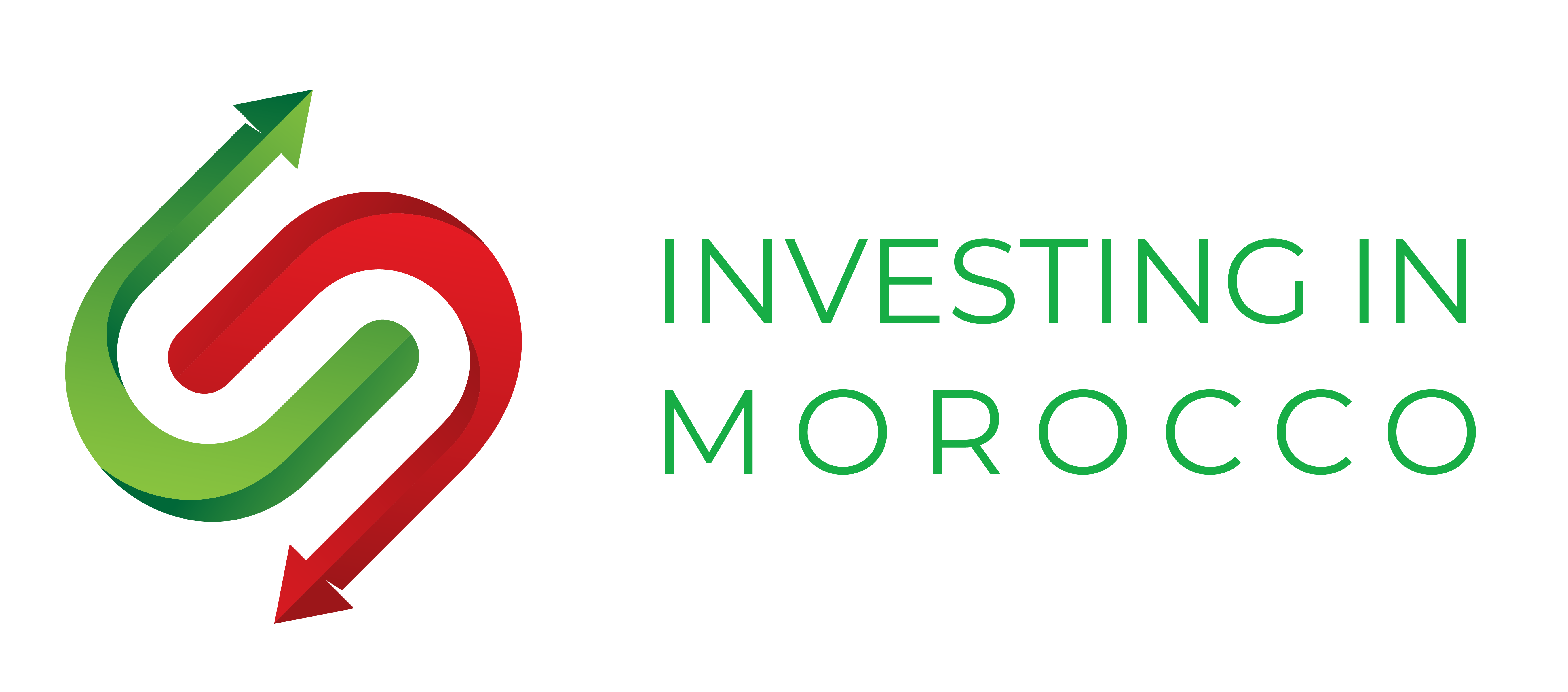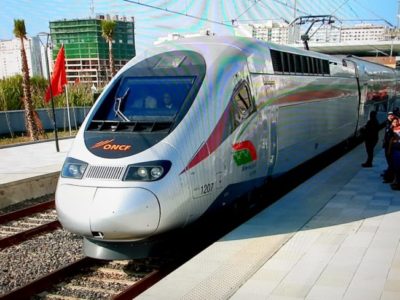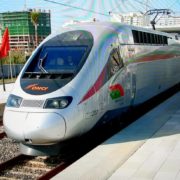
Upon consultation by a public institution, I was asked about the levers and barriers to entrepreneurship in Morocco and whether it could become a “startup nation”.
When we think of the “startup nation”, Silicon Valley comes first to mind. With a third of the US venture capital funding being funneled to the region, Silicon Valley has caused cities and even countries around the world to scramble to reproduce the hub’s culture of their own.
But even just looking up north to a country that feels closer to ours, France recently and legitimately started to call itself a startup nation due to its president’s declaration of the tangible successes and promises of its entrepreneurs (e.g. Criteo, Blablacar, Withings, Sigfox, Deezer, Leetchi, … etc).
In Morocco, there’s this widespread thought amongst actors in the emerging startup ecosystem (see mapping above) that we’re getting closer to a point of inflexion. Then maybe now is actually the right moment to ask ourselves why and how Morocco could become a “startup nation”. The question is vast and complex, and should deserve more than the few thoughts I am nonetheless sharing in this article.
Beyond the hip buzzword;
why should Morocco become a “startup nation”?
A preliminary question worth asking:
- is it even desirable that Morocco becomes a so-called “startup nation”?
- What progress in our society are we seeking through startups?
- Do startups offer a solution to youth unemployment?
Encouraging micro-businesses is key to address Morocco’s rising youth unemployment, which goes hand in hand with its growing frustration paving the way for political instability. Through the recent adoption of the auto-entrepreneur framework (2014), similar to the one in place in France, Morocco was putting in place a lever to integrate the informal economy into a legal framework, investing in Morocco.
Yet micro-businesses are not necessarily startup promises. For the startup world, such a framework may act as a facilitator. Many of the startupers I know in France have managed their professional transition from the corporate world to the startup ecosystem after negotiating a rupture conventionnelle and leveraged the unemployment aids they had contributed to to be turned into a company creation capital (e.g. ARCE). The French welfare state framework proves useful to support the rise of startups. And to be honest, the only successful startupers I’ve met were people that were not particularly concerned with any immediate threat of unemployment. They are all highly educated and cosmopolitan, had professional exposure to high stake challenges that eventually led them to think of a marketable startup solution, and managed throughout their education and professional endeavors to build up an actionable network of helpful contacts. As Mark Zuckerberg’s address at Harvard suggests, the startup scene might well be a new elite indeed https://www.youtube.com/watch?v=BmYv8XGl-YU.
“An entrepreneurial culture thrives when it’s easy to try lots of new ideas”. This “freedom to fail” is waged by those who have a cushion they can fall back on if they fail. Not so long ago, a certain Adam Smith wrote: “It is not very unreasonable that the rich should contribute to the public expense, not only in proportion to their revenue, but something more than in proportion”.
Perhaps that draws a potential new and useful role for the local elite to take.
Startups to raise a new breed of real “third-world” problem-solvers …
Let me just quote Patrick Ehode to illustrate that point:
And by “cutting the umbilical cord”, we also mean adopting a new perspective on some of our old-fashioned products that could be taken to the next level with tech levers. Take the Grands Taxis for instance: Uber Pool is nothing but the optimized tech-version of a very old pooling system that is still vastly used in the country. How many other to-be-transformed-to-tech-products out there still waiting for us if we only start seeing them as greater business opportunities?
Becoming a startup nation is a matter of general interest only insofar as we manage to design our own innovative solutions to our own challenges (e.g. providing access to education, healthcare, managing the impact of global warming, etc.). For now, despite the renowned leapfrogging successes such as M-Pesa that are promoted in the African startup narrative, “most of the technology transforming the continent comes from elsewhere”. I hear so many startup ecosystem actors and journalists calling for the next African Mark Zuckerberg. Hint: we don’t need another Mark Zuckerberg, despite his obvious brio, because, guess what, he already exists and he’s already delivering all of the products of his mind to the rest of the world. We need others, that have a very strong business acumen and are so deeply attached to seeing their society progress that they put into good use their brain, time and energy shaping tech-leveraged solutions for all.
Startups to set standards in terms of work ethics with efficient agile methods inspired by programming problem-solving principles
To thrive, a startup must identify specific needs of its target market, eventually coming up with a simple and effective solution. Doing so, startupers are result-oriented and mindful of their time and budget. There’s so much to learn from them.
Coding principles may apply to catalyze efficient business & public decision-making. It may sound anecdotal at first, but once you’ve done a deep-dive into coding, your perspective on real-life challenges may well shift. You start not only noticing the various inefficient interactions in your daily life — that, you can do with a basic econ 101 class or else, just using your common sense-, you start thinking everything can effectively be simplified with decision-makers learning product design roadmaps for instance or following the Agile Manifesto to achieve functional features/deliverables at the end of each streams. It promotes a people oriented methodology, along with collaborative values following a set of non-negotiable principles: commitment, courage, focus, openness, respect. Isn’t it what we wish to see at every C-level or public institution high stake meeting? Don’t we wish that any parliament session would use the SCRUM methodology? Or, let’s be wild dreamers and go even further with the perspective of an online direct democracy, with laws crafted under the SQL CRUD framework (create/read/update/delete), finance acts agreed upon with the KRAM framework (keep/add/less/more). With DRY politicians (Don’t Repeat Yourself)! Or else, an efficient orientation system at school using user stories:
- As a <ROLE/PROFESSION>
- I can <ACTION>
- So that <VALUE/PURPOSE>
It’s more than a jest: truth is, the tech startup world is putting a lot of pressure on old-fashioned systems of governance that need to be adapted and modernized. It’s true in Morocco, and elsewhere in the world — let me quote Jamie Bartlett on that: “Once again, technology is key: Patri is taking the Silicon Valley mindset and applying it to the nation-state. There are all these things you could now do that didn’t exist when our current system of government was invented, he told me. Constant online direct-democracy voting, building smart-cities, using crypto-currencies. And yet we still use a 19th-century model.” I view the tech startup pressure positively as it can sustain the highest authorities of Morocco in their effort to promote a democratic transition.
Now that we may agree that Morocco has every interest in becoming a startup nation, what can it do to bolster this goal? We could talk about reducing the multiple barriers to doing business, investing in tech education to breed a new generation of talents, putting in place the proper funding mechanisms … but beforehand, I’d like to highlight “soft” levers that, if left unaddressed, might kill any hard levers to the startup dynamic.
Creating a self-fulfilling startup nation narrative requires boosting the entrepreneurial ambitions in Morocco: we need to gain back a mojo to compete internationally!
Instilling the startup mindset while leveraging on real socio-cultural assets
«It is a story not just of talent but of tenacity, of insatiable questioning of authority, of determined informality, combined with a unique attitude toward failure, teamwork, mission, risk, and cross-disciplinary creativity ». We can learn a lot from the Israeli Chutzpah, or else just develop our own strong work ethics based on our resourcefulness, tolerance, capacity to network and collaborate well with others, curiosity, sense of effort and loyalty.
We also need to get rid of negative self-fulfilling perspectives. There’s this common belief amongst the youth of Morocco, just like that of many “third-world” countries, that only being abroad (read: in first-world countries) allows a potential to be untapped. Whilst finding recognition and support might be easier in mature markets that are favorable environments to reliable talents, I think Moroccan startupers that chose to leverage their smart capital in Morocco (i.e. market knowledge, network, etc.) can bring this unique perspective into their homeland and have a much broader impact doing so.
Another barrier to the diaspora coming back home from Western countries/developing strong business ties with the motherland, especially for women, is the fear to lose the freedom and recognition they gained studying then staying abroad, building their adult selves far from family constraints and social pressure. I have countless stories in my mind of brilliant female young professionals who are not feeling ready to trade their peaceful and rewarding lives abroad despite having the most brilliant ideas to change their society back in the motherland. Vivid forces from the diaspora matter: not just in terms of financial flows but rather in terms of talent and mindset. Immigrants are naturally less risk-averse as they demonstrate an ability to uproot themselves to settle in a new country. Their perspective is extremely valuable to foster an innovative entrepreneurial mindset amongst the youth of Morocco. We need tangible incentives to make it obvious for them that the possible gain of investing time and money in the motherland is absolutely worth the pain. Let me share an anecdote that could tell the do’s/don’ts to incentivize the Moroccan female diaspora in particular to bring back its talents to the motherland. A few years back, as a student of the B-school HEC Paris, I was invited as part of a sports delegation to an international gathering of sports decision-makers. The Moroccan Minister of Youth and Sports was there too, and was invited on stage at the last minute to replace a key speaker. At the end of his speech, a Moroccan peer of mine asked me to go with him to salute the Minister. We went and shook hands. With a very paternalistic attitude, he went on and told us: “You’ll have to go back to Morocco”. I spontaneously answered: “Well, it depends on the opportunities Morocco can offer to us”. After all, France had done much more for my international higher education with the Scholarship for Excellence I had been granted, that resulted from my efforts at school in the very favorable environment my parents had worked hard to create. It was 100% legit of me to question this option, as starting my career in Morocco was indeed just an option… With an offended and greater paternalistic tone, the Minister went on and said: “You shouldn’t even be asking yourself this!”. Something close to a-word-to-be-banished : “hchouma” that translates into a heavy “shame on you”. I noticed how slightly more aggressive he was mansplaining things I should be asking myself or not, while my male peer had just been granted a warm “congratulations on making it to HEC!”. And it only reinforced me back then in the idea that I wouldn’t want to waste all the time, and energy and ambition, and maybe most importantly the enthused commitment I had put in my higher education working with or for people with such authoritative close-mindedness.
We need to build positive nudges, hard (economic and fiscal) ones, and soft (conducive environment to respectful collaboration) to attract the diaspora, especially the female one. Entrepreneurship, and tech entrepreneurship in particular, might well be a new venue for women from the diaspora to thrive professionally back in the motherland, avoiding all the drawbacks linked to possible fictions with the pressure they may suffer. The startup nation might well become an opportunity for those women to reconcile entirely with Morocco and offer what they can to tap its potential. It is far from insignificant to encourage such entrepreneurship in a country where the activity rate of women is only of 25.3% vs. 72.4% for men.
Setting up the right educational and professional tech standards
I’ve worked the past 3 years as a digital strategy consultant in Paris and taken part in the board of Led By HER, a social incubator that helps women entrepreneurs that have suffered violence. About a year ago, I’ve decided to quit my job and learn how to code through the bootcamp Le Wagon in Barcelona. Le Wagon’s specificities is that it is a product-driven coding bootcamp teaching Ruby, Ruby on Rails, JavaScript, SQL, HTML & CSS, APIs, Github, and Heroku (among other things). The program brings coding skill to creative entrepreneurs to enable them to build their own application, find a job in the tech industry (as junior developer or product manager) and collaborate efficiently with their future dev team. The custom tools and platforms being used in the bootcamp have been custom-built over the last years, featuring 45 lectures and 300 challenges that will be completed in the 9-weeks program. According to SwitchUp reviews, Le Wagon is currently Europe’s best coding bootcamp.
Learning coding in such an intensive and with such well-rounded methodology — which is what made it effective — was an empowering experience: not only it taught me how I could translate any idea into a not-so-capital intensive business, it prepared me to be an entrepreneur with a developer mindset, ready to solve real-life challenges and collaborate effectively with likeminded changemakers.
I’m excited to bring Le Wagon to the motherland, to help tech accelerate amazing creative entrepreneurs that will have a positive impact here and abroad! I believe there’s a book to be written about the rise of startups in Morocco. I am hopeful that this top-notch European coding school that is launching its first African location in Casablanca, will support many great startupers that will take a great part in writing such new narratives.
A few years back, upon reading Christopher M. Schroeder’s book, I sent him a message wishing that he could write something similar for North Africa. He answered with a simple, very American-straight-to-the-point-attitude: “You should do it!”. The message was clear: we are not to expect anybody else to change the narratives of what are, what belongs to us and what we can offer to the rest of the world. Nobody else is going to do it for us!
So yes, why don’t we write our own successful stories of a thriving startup nation.
Narratives are key … and it’s pretty obvious that macro-economic tangible pillars are to be put in place for a thriving startup scene.
A startup-friendly socio-political and economical framework to shape
Venture capital — where art thou?
While France has become one of the top destinations for the startup investment in Europe, Morocco is aiming at a similar trajectory in Africa. In four years, the amount invested in technology startups in Africa has increased 8.7 times in 2016, which represents $ 366.8 million in 2016 compared to 42.1 million in 2012, according to a study published by the Partech Ventures fund (which only retained transactions exceeding $ 200,000). In Morocco, the recent Innov Invest proposition is rather valuable to complement the offer of Maroc Numeric Fund and other private initiatives, such as Outlierz. It is all very valuable but far from the level of funding startupers get in France for instance. You may want to sign-up on Maddyness and receive every morning at 7 AM a reminder of the gap to close: more than 420 millions per month are being raised on average this year by French startups …
A startup-friendly label
Morocco knows how to deploy its innovative capacity to attract investments. The Casablanca Finance City labelfor instance offers tax advantages such as total exemption from the corporate tax for 5 years and a reduced 8.75% tax rate thereafter for service companies, exchange arrangements and other “doing business” facilities (e.g. foreign workers visa, company creation within 48hrs etc.). It’s favorable to retaining economic activities in the country … but it seems to me that those that need the most such boost are the promising local startups/SMEs, to whom nothing even slightly comparable is offered as of today. Maybe such fiscal incentives could be offered to corporates that are indeed investing in seed-funding startups, especially those that act to meet the greater plans of development (e.g. Maroc Vert, Plan Numérique 2020, etc.).
We’ve also given a political representation to the CGEM (Confédération Générale des Entreprises du Maroc) in the Parliament, it’s never been done anywhere else…! How about a qualitative representation of the startups , that have very specific concerns in terms of competition law, labour law, etc. ? That would be a powerful signal to the place we want to give to the startups in this country.
A visa for talents
Any aspiring startup nation makes its best to attract and retain talent: Israel has done it, France has done it with the French TechVisa. Even Saudi Arabiaannounced it would do it! Morocco, that is at the crossroads of Africa, the Arab World, and Europe, has an even bigger potential to attract foreign talents that find a strong appeal in the lifestyle they can find here. Many international programs or coworking spaces are tailoring offers for digital nomads (e.g. Remote Year, Sun Desk, the Blue House, etc.). Whilst it is rather easy for North Americans and Europeans to come visit Morocco visa-less, getting a flexible work-permit is rather the struggle. That should change!
A real tech hub
The term “startup nation” was popularized even more by researchers Dan Senor and Saul Singer in 2009 in their book Start-up nation: the story of Israel’s economic miracle, referring to the Israeli Silicon Wadi, a hub which produces approximately 1,500 startups per year according to the high-tech entrepreneur and investor Yossi Vardi. Today, 20% of NASDAQ-listed companies are Israeli and the total amount of transactions in Israel’s high-tech industry, which has grown significantly since 2010, has reached nearly $15 billion. We all use a lot of these tech-gems that were generated there, starting with Waze for Uber and Careem drivers for instance.
Other examples of countries that can be comparables to Morocco on the macro-economic level come to mind. Colombia is a compelling example of how a country managed to build from scratch a vibrant tech hub. How about making Casablanca and its surroundings the next Medellín of Morocco? Several accelerator programs and seed stage investment funds are now popping up in the city. The city is conveniently located for international startups, only a 3-hours from Paris or London. The government of Medellín has committed $389M to fund technology and innovation initiatives locally. Now there are a few improvement points that we should address to make it appealing to international startupers (e.g. general legal framework to make it more female-friendly, English, etc.).
The criteria that are valued for tech-talents to choose a startup ecosystem to work in are varied: it goes from salary, to social security and benefits, the cost of living, the quality of living. Let’s start working on the first two items to reduce the cost of opportunity of settling in Morocco!
Last, but not least … an international education and vocational training!
The failures of the public education system are known to the vast majority. They’ve also been pointed out in the most recent Court of Auditor’s report. Internationalization of higher learning in Morocco would result in the increase in flow of ideas, attitudes, values, technology, economy and people across borders — all necessary responses to the impact of globalization. A fast way to attract international students and bringing this standard into a higher education is by partnering with established universities in North America, Europe and Africa. We can only rejoice that more and more international schools have chosen to establish strong ties with Morocco (e.g. French schools such as EM Lyon, ESSEC, Centrale have opened local campuses, SciencesPo Paris has largely contributed to the set-up of EGE, American universities have set integrated African-challenges oriented MBAs, etc.).
To become a startup nation, Morocco needs to work towards presenting itself as a country where entrepreneurship is not only possible, encouraged by the economic public frameworks put in place and socially valued, supported by both the governors and the C-level leaders of the big corporates that start multiplying open innovation initiatives and getting closer to the entrepreneurial ecosystem. Only through this favorable alignment of all stakeholders can it achieve the great and promising call of becoming the next African startup nation, or even better, fulfilling in the best possible way our role to be the most efficient and reliable gateway to a greater potential, the African market.
About the Author
Hanae Bezad is the CEO of LeWagon Casablanca. Prior to her role at LeWagon she worked as a digital strategy consultant in Paris and served on the Board of Led By HER, a social incubator that helps women entrepreneurs that have suffered violence. She is responsible for bringing Le Wagon, the #1 coding bootcamp worldwide, to Casablanca, the first African location of the network, in order to help tech accelerate amazing creative entrepreneurs that will have a positive impact there and abroad!She is also responsible for Douar Tech, a social arm of the coding bootcamp that aims to empower young people from precarious backgrounds in rural Morocco identified as high potential entrepreneurs with tech startup and coding skills.
- The original publication of this article was on her private Medium page.



















Comments